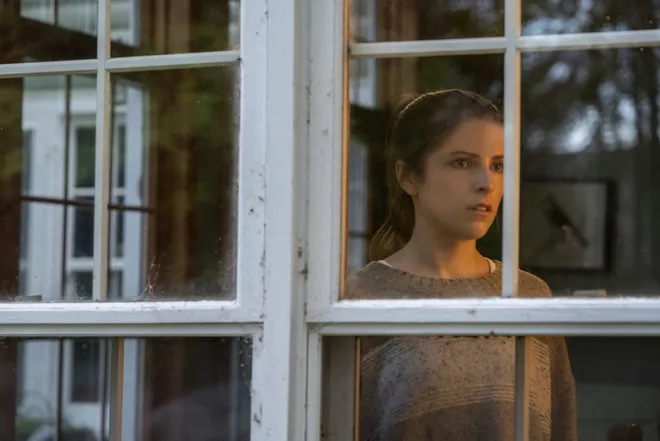Blogs
Anna Kendrick lost part of herself in an abusive relationship: ‘I’m still getting it back’
NEW YORK – Anna Kendrick is reclaiming her story.
The Oscar-nominated actress is earning career-best reviews for “Alice, Darling” (exclusively in AMC theaters nationwide Friday), playing a young woman trapped in an emotionally abusive relationship. Kendrick, 37, signed on to the project two years ago, as she was coming out of a long-term relationship with a psychologically abusive ex.
Looking back on that experience, “it does feel like something was stolen (from me),” Kendrick says. “Getting trapped in that loop of trying to make (the relationship) better, and figure out a way to fix it, meant that I was also sacrificing more and more of myself.
“I was self-abandoning over and over and over again, and something was very lost for a long time. I’m still getting it back.”
Alice (Anna Kendrick) grapples with anxiety and paranoia at a lakeside cabin in “Alice, Darling.”
The dramatic thriller follows Alice (Kendrick) as she takes a weekend getaway with her two best friends, Sophie (Wunmi Mosaku) and Tess (Kaniehtiio Horn). Alice is visibly uneasy and tense throughout the trip, after lying to her controlling boyfriend, Simon (Charlie Carrick), about her whereabouts. Tess and Sophie glean that something isn’t right with their friend, and try to help Alice recognize her abusive situation.
Alice had visible bruises in an earlier version of Alanna Francis’ script. But Kendrick, who also executive produced the film, felt it was important to show that not all abuse leaves physical marks. She imagined what it’d be like to watch this movie if she still was in that toxic relationship.
“I really didn’t want to make a film that I would have gone, ‘Oh, well it’s not as bad as this movie. Maybe I’m just dealing with normal, healthy conflict,’ ” Kendrick says. “It’s a bold thing to just stay with the main character’s experience, rather than spoon-feeding an audience, ‘Here’s the abuse you can point to.’ To just look at the (psychological) effect that it’s having on a person and trust that it’s abusive.”
Instead, the film portrays the casually sinister ways that Simon messes with Alice’s head. He closely monitors where she goes and what she eats, and guilts her for grabbing drinks with friends.
“Those daily things add so many layers to the more obvious moments of abusive behavior,” Kendrick says. When someone is angry or violent, “sometimes it’s easier to go, ‘OK, this has crossed a line and this isn’t about me. This is about you.’ And with those smaller moments that are so insidious, I feel like, ‘There’s a judgment and a superiority here. But if I call it out, I’m going to get told that I’m imagining it.’ “
Wunmi Mosaku, left, Anna Kendrick, and Kaniehtiio Horn in a scene from “Alice, Darling.”
Like Alice, Kendrick had good friends to lean on during her past relationship. But even then, she never painted the full picture.
“I kind of sprinkled all the gory details into conversations with different friends,” Kendrick recalls. “Because I knew that if I told the whole thing to one person, that person would be like, ‘Dude, run.’ “
With the help of therapy, Kendrick was eventually able to acknowledge the abuse for what it was. Although she keeps details vague, a “huge turning point” was when she found “black-and-white evidence” that her partner was gaslighting her.

